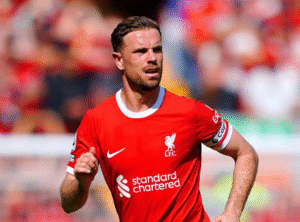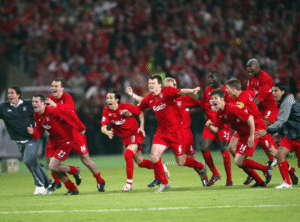Pemain Sepak Bola dengan Julukan Paling Ikonik

SABA SPORT – Football is more than just a game; it’s a global phenomenon. It inspires passion and creates heroes. These heroes often earn memorable nicknames from fans and commentators alike. These aren’t just random names. They tell a story of skill, personality, and impact on the pitch.
A well-chosen nickname can elevate a player’s status. It can solidify their place in football folklore. It connects them with fans on a deeper level. This article explores the origins and significance of julukan pemain bola. We’ll delve into the stories behind some of the most iconic monikers.
The Power of a Nickname in Football
Why Nicknames Matter
Nicknames provide a shorthand way to describe a player. They capture their essence in a single word or phrase. It fosters a sense of familiarity and affection. It allows fans to connect with players beyond their statistics. Nicknames can also reflect a player’s cultural background or playing style.
A strong nickname can significantly boost a player’s brand. It makes them more marketable and recognizable. Think of iconic names like “El Diego” for Maradona. Or “CR7” for Cristiano Ronaldo. They are instantly recognizable and globally understood. They represent excellence and achievement.
These monikers often originate organically. It grows from spontaneous moments or clever observations. Sometimes, the media plays a crucial role. They popularize and solidify certain nicknames. It transforms them into lasting legacies. These names become part of the rich tapestry of football history.
The Psychological Impact
For players, a good nickname can boost confidence. It creates a sense of identity. It can even intimidate opponents. Imagine facing “The Gladiator” in midfield. Or “The Atomic Ant” darting past you. The psychological impact is undeniable. It contributes to the overall drama of the game.
Conversely, a negative nickname can be detrimental. It can undermine a player’s morale and performance. The pressure to live up to expectations is immense. Particularly when that moniker carries a heavy weight of expectation. Therefore, the context and intent behind a name are vital.
The relationship between a player and their nickname is complex. It is a mix of pride, pressure, and recognition. It reflects their standing in the eyes of fans and the footballing world. It’s a testament to their impact on the beautiful game. Understanding this is crucial to appreciate julukan pemain bola.
Read More: Sejarah Klub dengan Logo yang Sering Berubah
Iconic Julukan Pemain Bola: A Closer Look
Legends and Their Labels
Many legendary footballers have earned nicknames that reflect their skill. Or their personality. “O Rei” (The King) for Pelé speaks volumes about his reign. “Der Kaiser” (The Emperor) for Beckenbauer signifies dominance. These names capture their extraordinary achievements. They are etched in football history.
Consider the phenomenon Ronaldo Nazário, known as “O Fenômeno”. His skill was simply extraordinary and magical. George Best was famously known as “El Beatle” because of his charming personality. These names are not just identifiers. They are symbols of their iconic status.
These nicknames often transcend language barriers. They become universal terms of endearment and respect. They celebrate the artistry and charisma of these exceptional athletes. They contribute to the global appeal of football. They add to its rich storytelling.
“El Nino” and the Story Behind Fernando Torres
Fernando Torres was dubbed “El Nino” (The Kid) early in his career. This nickname reflected his youthful exuberance. It also showed his precocious talent. He burst onto the scene with Atletico Madrid. He instantly became a fan favorite for his goals.
The name stuck with him throughout his career. Even as he matured and moved to bigger clubs like Liverpool. “El Nino” became synonymous with Torres’s explosive pace. Also with his deadly finishing ability. It served as a constant reminder of his early potential. It embodied his youthful enthusiasm.
While his career had ups and downs, the nickname remained. It created a lasting connection with fans. It highlighted his impact on the game. It showcased his journey from a promising young talent to a seasoned professional. This is just one example of how nicknames stick.
Beyond the Pitch: The Meaning of “Gladiator”
Some nicknames reflect a player’s fighting spirit. Or their tenacity on the field. Players are often called “Gladiator” when they show relentless determination. These players display incredible resilience. They never give up, embodying strength and courage.
A “Gladiator” is known for their tough tackling. Also, they are known for their unwavering commitment to the team. These players are often the heart and soul of their respective clubs. They inspire teammates and fans alike with their never-say-die attitude. They lead by example on the pitch.
This type of nickname often carries a sense of respect. It acknowledges the player’s sacrifices and hard work. It highlights their willingness to put everything on the line for their team. It reinforces the idea of football as a battle. Where only the strongest survive and conquer.
Read More: Bagaimana Klub Mengatur Tiket Musiman Fans
The Evolution of Julukan Pemain Bola
From Simple Descriptions to Creative Expressions
Early julukan pemain bola were often simple and descriptive. They focused on a player’s physical characteristics. Or their playing style. “The Blond Arrow” for Alfredo Di Stefano is an example. It described his speed and hair color. Over time, nicknames have become more creative.
Modern nicknames often incorporate humor. Or they reference pop culture. They are also based on social media trends. This reflects the changing landscape of football. It’s a more connected world. It showcases a shift towards personalized branding.
The evolution of nicknames also reflects the changing nature of the game. As football becomes more globalized, nicknames become more diverse. They bring in influences from different cultures. They create a richer and more vibrant tapestry of footballing language.
The Role of Social Media and Fan Culture
Social media plays a significant role in shaping nicknames. It also helps in spreading them rapidly. Fans now have a direct voice. They can contribute to the naming process. They can suggest nicknames or popularize existing ones.
Online forums and fan communities also contribute to this. They can discuss and debate the merits of different nicknames. They also create new ones that reflect their shared experiences. This creates a more participatory and democratic process.
This increased fan involvement also makes nicknames more personal. It makes them more meaningful. It strengthens the bond between players and their supporters. It reflects the power of collective identity in the world of football.
Conclusion
julukan pemain bola are more than just simple names. They are reflections of skill, personality, and impact. They encapsulate the essence of a player. They create a lasting connection with fans worldwide. They add to the rich storytelling of the sport.
From “O Rei” to “El Nino,” these monikers carry weight and meaning. They reflect a player’s journey. They reflect their triumphs and challenges. They serve as a reminder of their place in football history. They contribute to the enduring legacy of the beautiful game.
Understanding the power and evolution of player nicknames provides a deeper appreciation. It appreciates the cultural significance of football. It appreciates the connection between players, fans, and the game itself. It highlights the enduring magic of julukan pemain bola.







